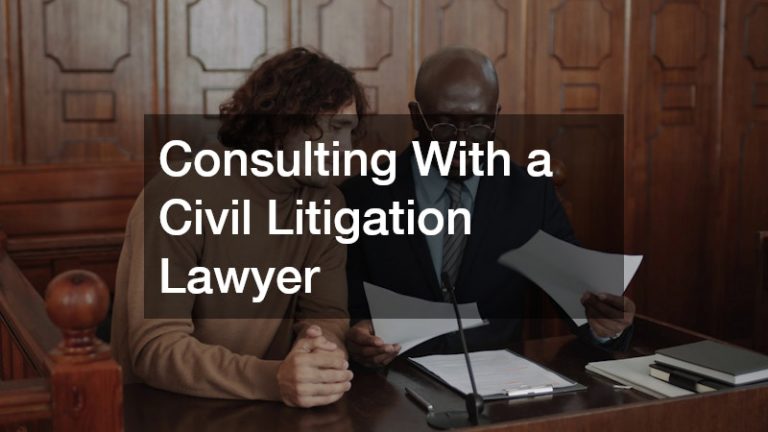

Law degree holders can get a wide range of excellent professional opportunities. However, different law specialties are available, making it difficult for aspiring lawyers to choose the ideal legal path. Law schools don’t require learners to choose a specialty before enrolling for a law degree. However, to become a successful attorney, you must know the basics of every kind of law. Still, lawyers usually choose to focus on one or two distinct areas of law. For instance, while an injury lawyer represents defendants and plaintiffs in injury cases, criminal defense lawyers represent criminal defendants. Usually, lawyers opt to specialize in a field of law because understanding all the different law specialties is not easy. Here are different law specialties that anybody considering becoming a lawyer should know.
Bankruptcy Law

Bankruptcy is a collection of federal rules and laws that can assist businesses and individuals who cannot pay what they owe. Usually, a bankruptcy lawyer files bankruptcy cases in bankruptcy court. Bankruptcy, one of the different law specialties grants people who cannot pay what they owe a new start through asset liquidation to settle their debts. They can also come up with an effective payment plan. Bankruptcy laws safeguard businesses and develop practical distributions to business creditors via liquidation or reorganization. Usually, a bankruptcy case begins with the debtor filing a placing a petition at the bankruptcy court. Corporations, spouses, or individuals can file a bankruptcy case. The debtor also files statements listing the addresses and names of all creditors and the amount they are owed, liabilities, income, and assets.
Filing the petition stays or prevents debt collection efforts against the debtor or his property automatically. The stay bars creditors from continuing or bringing lawsuits, making demand calls, or wage garnishments. Creditors get a notice from the court clerk informing them of the debtor’s bankruptcy petition. Sometimes debtors file for bankruptcy to allow them to schedule a repayment plan. Some cases involve the liquidation of a debtor’s property. In bankruptcy cases involving liquidating an individual consumer’s property, there is limited or no money in their estate to repay creditors. In such cases, there are few disputes or issues, and the debtors are usually given a discharge of nearly all their debts with no objection. That means the debtor will no longer be liable to repay the debts. However, sometimes disputes may trigger litigation in bankruptcy cases over various matters, like who owns a specific property. Parties may struggle to understand the property usage, its worth, the amount of debt owed, how much should be paid to auctioneers, accountants, or lawyers, and whether a debtor should be discharged from some debts.
Motor Vehicle Accident Law
Motor vehicle accident law is one of the different law specialties that blends personal injury law and traffic law. It involves the verification of fault in liability in a traffic accident and is nearly always determined under the laws of the state where the accident happened. Once an accident occurs, a police officer takes photos, evaluates the accident scene, and interviews witnesses to help determine how it happened. The accident victims then file claims with their vehicle insurance firms, who review the police report before ascertaining liability.
The insurance firm may compensate part of vehicle repair or replacement costs based on the state’s vehicle insurance laws and who is liable. If the damage is severe, one party may opt to file a suit against the others. Individuals who file the lawsuit are referred to as a plaintiff, while respondents are referred to as defendants. Usually, the defendant’s insurance firm pays the cost incurred in shielding the lawsuit and any damages should the plaintiff win. Many cases highlight the negligence of one of the drivers, meaning they violated a responsibility to be safe drivers, resulting in injuries to the plaintiff.
Often, a vehicle accident lawyer works in insurance defense, meaning they have collaborated with an insurance firm to shield their clients against lawsuits from vehicle accidents. Still, vehicle accident victims considering suing other individuals involved in the vehicle accident should hire their personal injury lawyer. These attorneys help them collect evidence and evaluate documents akin to the accident. Motor vehicle law combines specialties like personal injury and traffic laws. However, it is also associated with various practice areas like product liability and insurance law. People involved in motor vehicle accidents may struggle to establish liable parties without expert help. However, an experienced and qualified accident attorney can help them.
Criminal Law

Criminal law is among the different law specialties that define state and federal laws that make some behavior unlawful or punishable by fines or imprisonment. In the U.S., British common law ruled in the colonial era. Common law is a procedure that initiates and updates regulations that lead some nations. When America gained its independence, it embraced the U.S. Constitution, making it the supreme law. The U.S. still utilizes a popular law system that works together with federal and state statutes. Each U.S. state has a unique criminal law penal code that distinguishes crimes from non-crimes, offenses’ severity, and punishment. Criminal cases are usually classified as misdemeanors or felonies depending on their identity and the utmost imposable punishment. Each state is at liberty to develop new criminal laws, but they should be deemed constitutional. As a result, what is a crime in one state may not be a crime in another. Felonies involve severe misconduct punishable by one-year imprisonment or death.
Many state criminal laws subcategorize felonies into varying groups with different punishment degrees. Crimes that don’t qualify as felonies are usually known as misdemeanors or misconduct, defined as punishable by a maximum of one-year imprisonment. Lesser offenses like parking and traffic tickets are typically referred to as infractions. One of the misconceptions in criminal law is that police officers charge offenders. Worth mentioning is that police collect evidence and may sometimes be required to testify in court. Prosecutors such as U.S. and district attorneys determine whether the accused is prosecuted or not. An experienced criminal lawyer is critical for individuals charged with an offense. These lawyers are conversant with local criminal laws and procedures, with some working as prosecutors. Many defense lawyers can handle any low-level or misdemeanor crime. However, not all attorneys are qualified to manage serious charges. Some courts bar less experienced attorneys from representing suspects facing capital retribution.
DUI Law
DUI (driving under the influence) of alcohol or other impeding drugs is a crime in all U.S. states. New York was the inaugural state to approve the DUI law in 1910, with California and various other conditions following a year later. However, none of the statutes defined being impaired or drunk accordingly. As a result, the early laws weren’t enforceable. States would later realize they required a neutral method of determining a driver’s impairment. This led to the invention and acquisition of the Drunk-o-meter. Indiana later became the inaugural state to initiate a BAC limit.
As the BAC limit advanced steadily, other states developed individual BAC limits to administer drunk driving laws. Federal agencies and the American Medical Association encouraged states with weak laws to establish BAC levels at 0.15% or even lower. However, they were at liberty to develop their unique guidelines. Further, states had varying drinking ages ranging between 18 and 21. However, research suggested that higher drinking ages corresponded with low drunk driving rates. This would change in 2000 after Congress approved a law compelling each state to establish a 0.08% BAC limit with the drinking age being 21.
Noncompliance would result in the loss of colossal amounts in federal highway fees, forcing all states to comply. The NTSB (National Transportation Safety Board) suggested reducing the BAC limit to 0.05% in 2013. A drunk driving sentence can result in loss of driving liberties, huge fines, and sometimes jail time. It can also affect your job security negatively, increasing your insurance rates significantly. In this case, you should hire a DUI lawyer to deal with your issue. The ideal DUI lawyer should be experienced in evaluating the evidence against you, ensuring your rights are safeguarded, and obtaining the best viable outcome.
Workers’ Compensation

Regardless of how hard employees work, they are prone to get injured while working. What happens when you suffer injuries on the job? This is where workers’ compensation offers exclusive cover for employees in most states. A worker’s compensation usually follows firm procedural regulations that laypeople may struggle to understand. This is where a workers comp lawyer comes in to assist. The inaugural step in every worker’s reimbursement claim is to determine whether you are covered or not. Usually, two core factors ascertain your coverage: whether you’re an employee and whether the injury occurred within the confines of your working area. These factors do not guarantee that workers’ compensation will cover you after an injury because workers’ compensation doesn’t cover all employees. Usually, coverage depends on state laws.
Workers’ compensation is one of the different law specialties that does not cover intentional injuries or those that happened under intoxication. Employees should comply with workplace regulations and rules. They should also report injuries immediately and collaborate with rehabilitation service providers to avoid risking a reduction, wage loss benefits, or suspension. Workers’ compensation guidelines give employees the right to lost vocational rehabilitation and wages. Employers must fulfill various regulatory and statutory responsibilities besides availing lost rehabilitation opportunities and salaries. Besides paying wages lost from the inability to work, injured workers usually get rehabilitation benefits. Suing an employer for workplace-related injuries can make you ineligible to collect workers’ compensation benefits. If you have any questions, consult a lawyer who will help you understand your injury, determine whether it is covered, and calculate what reasonable compensation should be.
Family Law
Family law is one of the different law specialties that focus on issues relating to family relationships like adoption, marriage, child custody, and divorce. Family attorneys at law can represent their clients in family court proceedings or similar negotiations. They can also develop crucial legal documents like property agreements and court petitions. Some family law attorneys specialize in divorce-related issues like emancipation, paternity, and adoption. Family matters incorporate various life aspects. As a result, lawyers in this field help a wide range of people facing different types of sensitive issues many may not believe occur under the family law patronage.
Family law is among the expansive and different law specialties, including various reproductive and foster care rights topics. Family law issues can be sensitive, so you need a trustworthy legal expert to represent your loved ones accordingly while protecting them during the legal process. Family law is usually cut across different law specialties. For instance, child abuse and domestic violence cases involve criminal inquiries and sometimes arresting and charging. Family courts are also responsible for ascertaining the best way to protect victims while providing a safe environment for everybody involved. Whether you need assistance with adoption or are in the middle of a divorce, working with an attorney ensures all your questions are answered appropriately.
Real Estate Law

Also known as property law, real estate law defines laws regulating the use or ownership of land in the U.S. It is one of the different law specialties that cater to the right to enjoy, use, and possess the land and its permanent artificial additions. Real estate law indirectly or directly impacts home sellers, buyers, landlords, renters, and homeowners. Every state in the U.S. has complete jurisdiction over the land inside its borders. Every state has a right to ascertain the effect and form of a transfer of real estate property within its jurisdiction. Due to this, state law requirements are different in each state. Apart from selling or purchasing lands, states usually control the leasing or renting of property for commercial or residential reasons.
Such laws cater to different practices like managing evictions and security deposits. Local and state laws can impact how people use their property. Environmental and zoning laws affect construction and development projects. Homeowner and community association regulations also affect property utilization in various modern residential areas. Whether you are a property owner or considering buying property, you must always work with a qualified real estate attorney who can walk you through the journey. An attorney will help you understand how to get the ideal mortgage, foreclosure, and home equity loans. The ideal attorney should also help you understand your rights as a property renter.
This article should help you understand the different law specialties if you consider studying law. It will also prepare you for future ventures.



